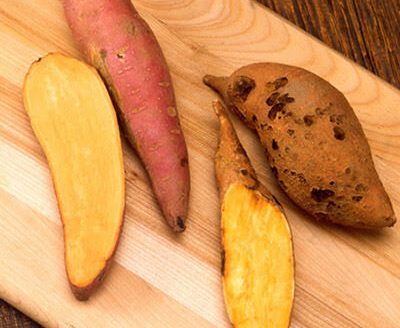The USDA’s Agricultural Research Service and Weed Science Society of America announced the launch of a free webinar series focusing on current research and advancements in managing weeds and invasive plants.
"ARS scientists have worked in a wide range of agricultural and natural ecosystems that include agronomic and horticultural crops, pastures, forests, rangelands, wetlands and riparian areas," said Steve Young, USDA-ARS National Program Leader for Weeds and Invasive Pests. "Our scientists have made contributions to discoveries in the newest fields of robotics and genetics as well as the traditional and fundamental subjects of weed-crop competition, physiology, and integration of weed control tactics."
By collaborating with WSSA, ARS scientists aim to highlight the important research that has contributed to the development of sustainable practices to control weeds and invasive plants.
"WSSA is excited to host a series of webinars to highlight the contribution of ARS scientists to our discipline," said Stanley Culpepper, WSSA president. "Their efforts to advance the knowledge of managing weeds and invasive plants is a crucial component of long-term management success."
Presentations will be given by USDA-ARS weed science research experts starting April 5. The webinars will occur every Tuesday from 2 p.m. to 3 p.m. Eastern and include an interactive Q&A session.
Schedule
April 5 – ARS Weed Science: Past, Present, and Future: Steve Duke, Principal Scientist at the National Center for Natural Products Research at the University of Mississippi, Steve Young, National Program Leader – Weeds and Invasive Pests, WSSA Representatives and ARS Administrators
Theme I: Tactics
April 12 – Integrated Weed Management in Cropping Systems: Marty Williams, Ecologist at the Global Change and Photosynthesis Research Unit in Urbana, Illinois
April 19 – Non-Crop Systems: Advancements in Weed Biocontrol Tools: Melissa Smith, Research Ecologist at the Invasive Plant Research Laboratory in Fort Lauderdale, Florida
April 26 – New Technology for Weed Identification and Control: Steven Mirsky, Research Ecologist at the Sustainable Agricultural Systems Laboratory in Beltsville, Maryland
Theme II: Mechanisms
May 3 – Role of Plant Physiology in Weed-Crop Competition: Dave Horvath, Research Plant Physiologist at the Sunflower and Plant Biology Research Unit in Fargo, North Dakota
May 10 – Molecular Basis for Controlling Invasive Plants: Matt Tancos, Research Plant Pathologist at the Foreign Disease-Weed Science Research Unit in Fort Detrick, Maryland
May 17 – Addressing Herbicide Resistance with Alternative Chemistries: Scott Baerson, Molecular Biologist at the Natural Products Utilization Research Unit in Oxford, Massachusetts
Theme III: Impacts
May 24 – Spread and Distribution of Invasive Plants: John Madsen, Research Biologist at the Invasive Species and Pollinator Health Unit in Albany, California
May 31 – Climate Change Effects on Weeds and Management: Dana Blumenthal, Ecologist at the Rangeland Resources & Systems Research Unit in Fort Collins, Colorado
June 7 – Restoration for Managing Invasive Plants: Roger Sheley, Ecologist at the Range and Meadow Forage Management Research Unit in Burns, Oregon
To attend the webinar, register here in advance. This webinar is open to the public, and WSSA membership is not required.
The Agricultural Research Service is the U.S. Department of Agriculture’s chief scientific in-house research agency. Daily, ARS focuses on solutions to agricultural problems affecting America. Each dollar invested in agricultural research results in $17 of economic impact.




